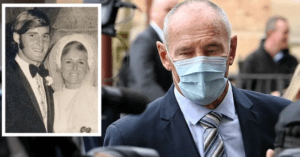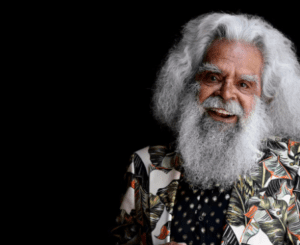
The affirmative consent law in Victoria was recently passed to allow the focus of sexual assault matters to shift to trying to get the perpetrators to prove that they gained consent from the victim rather then trying to get the victim to prove they did not provide consent. This reform outlines that the person must have a clear and enthusiastic ‘yes’ which is easily recognisable for the consent to be justified. The ‘yes’ can be anything such as a physical gesture, a verbal yes, or reciprocating a move that makes it obvious the answer is yes. It states that a person’s belief in consent must be reasonable which will include the steps they took to find out whether their sexual partner consented. Under the reform, the perpetrator must include r demonstrate what steps they too in order to gain consent from the victim which will ensure the attention is focused on their actions to confirm consent rather the what the accuser did, or didn’t do, to deny consent
The new law will ensure that the victim-survivors receive better protection from sexual assault with also making stealthing illegal as well to hep with preventing unwanted pregnancy. Despite the purpose of law being used to help victims of domestic violence, many are saying that the new definition and requirements might make the definition of consent more confusing as the definition is currently open to interpretation as the laws did not say that consent be given continuously through a range of different communication methods of words and actions. It is recommended that the new bill includes some more framework to make it more understandable as well as effective education the allows more people to be aware of the laws and new definitions.
If you or someone you know wish to discuss this issue further, then please do not hesitate to contact us on 02 8999 9809.

On 20 September 2022, NSW introduced “no body no parole” laws, and this bill means offenders must cooperate with investigators and disclose the location of bodily remains for any chance of release on parole. As expressed by Mr Perrottet, this proposed bill would prevent offenders from getting the chance to receive parole if they refused to disclose information about the victim’s remains, providing incentives to speak. This law came about after Chris Dawson’s murder conviction of Lynette Dawson, whose remains have yet to be found.
Parole is the conditional early release of prisoners to be able to serve a part of their sentence in the community. Parole recognises that aims of rehabilitation may be best served by providing opportunities for prisoners to transition back into the community. A case study to assess the effectiveness of ‘no body’ laws can be used through the Queensland’s “no body, no parole” laws which were passed in 2017. A successful example can be seen through the case of Graeme Evans, who was convicted of manslaughter over the death of his former partner Leeann Lapham which compelled him to plead guilty to the offence. The new “no body, no parole” laws would ensure that the offender in prisoner would deeply evaluate their options before they refuse to cooperate with the police.
This law being put into effect would help the families of the victims to attain assurance about the location of their loved ones. This is also dubbed as “Lyn’s Law” which was a reform that hoped to end the torment of loved ones. This petition started on September 12, 2022 and reached 30,000 signatures in seven days. In prison right now, there are estimated to be 6 murderers who could be affected by the proposed changes.
Once this legislation is passed, NSW would be able to be up to speed with the laws from other states, including Queensland, WA, SA, Victoria and the Northern Territory where offenders can be refused parole if they refuse to disclose their victims’ remains.
If you or someone you know wish to discuss this issue further, then please do not hesitate to contact us on 02 8999 9809.

Elon Musk’s tenure atop Twitter is being characterized by dysfunction, chaos and an abundance of layoffs, ordering widespread staff cuts at Twitter around the world a fortnight ago. Many are speculating that as many as half of its 7,500 staff could lose their jobs. At present, the company has laid off about half of its full-time staff. Musk has defended the extraordinary layoffs by stating that redundant employees received a three-month payment from the company.
Layoffs continued over the weekend with thousands of contractors being reportedly laid off with little to no warning. Casey Newtown, a tech reporter noted on Sunday that 4,400 of Twitter’s 5,500 contract employees were terminated. Rather than receiving a warning, contractors were merely denied further access to Slack and their emails. Unsurprisingly, such mass cuts were ‘expected to have significant impact to content moderation and the core infrastructure services’ pivotal to the site’s functioning.
These developments raise questions – and concerns – about how the world’s richest man intends on effectively operating the social media service, in conjunction with his ambitious plans to take it to “new heights”. Rarely have layoffs of this magnitude been made at a tech company by a single individual. While some may note that the scale was not unprecedented, the way in which layoffs have been done so quickly without detailed explanation to workers – about who was being laid off and why – is equally baffling as it is disheartening.
Musk is already facing legal challenges, with five former Twitter workers filing a class-action lawsuit against the company for the lack of notice provided. California and federal laws in the United States require companies to notify employees in advance of mass layoffs.
If you or someone you know wish to discuss this issue further, then please do not hesitate to contact us on 02 8999 9809.

Content Warning: The following article contains information regarding sexual assault.
Sexual assault is the legal term that encompasses a range of sexual offences committed against a person. Circumstances range from showing indecent images to another person, to kissing or touching them, in addition to penetration of another person’s body with a body part or object.
Offences often used synonymously with sexual assault include:
- Sexual abuse, rape, indecent behaviour, indecent assault, sexual molestation, incest, child sexual abuse, child sexual assault, touching and sexual harassment.
The law on this is outlined in Part 3, Division 10, 10B, 15B and 15C of the Crimes Act 1900 (NSW).
While the terminology is commonly used, the common law offence of rape was scrapped in New South Wales in 1981.
The Women’s Legal Service NSW have compiled the following table which clearly maps out the distinction between offences:
| Offence | What does it mean? | Penalty |
| Sexual Act (s 61KE) | A person shows you their penis or masturbates/touches their penis in public;
A person makes you look at porn (sexual pictures or videos) in a magazine, on a computer, phone or on television; A person sends your naked picture to other people or posts it online (sexting or cyber-bullying may fit in this category but are also a separate offence); or Any other sexual act that would make most people feel very uncomfortable. It is not necessary to show that it caused fear/distress. |
Carries up to 18-months imprisonment or a $5,500 fine, or both |
| Sexual touching (section 61KC) | A person touches you in a sexual way on your breasts, vagina or anus;
Includes touching over the top of or under your clothing that does not penetrate in any way; Kissing; or A person makes you touch their penis, vagina or anus. |
Carries a maximum penalty of 5-years’ imprisonment in the District Court, and up to 2-years’ imprisonment in the Local Court |
| Sexual Assault (section 61I) | A person has sexual intercourse with you when you do not want to, or you cannot consent; and
That person knows you do not want to or cannot consent or has no reasonable grounds to believe you consented. |
Carries up to 14-years’ imprisonment. Standard non-parole period of 7-years imprisonment. |
| Aggravated Sexual Assault (section 61J) | A person has sexual intercourse with you without your consent in aggravating circumstances. | Carries up to 20-years’ imprisonment |
What does ‘sexual intercourse’ mean?
Sexual intercourse involves:
- A person putting their penis, fingers, hand, tongue or an object into your vagina or anus; or
- A person putting their penis or vagina or anus on your mouth; or
- You putting your vagina, anus or mouth on someone else’s penis or vagina
Legally, sexual intercourse tends to involve some form of penetration by genitals, object or body parts into the mouth or genitals of another.
Aggravating circumstances include:
- Being under the age of 16 years old
- Use of a weapon during the sexual assault
- Having a severe disability
- The abuser being a figure of authority – i.e. teacher, carer
- You are physically hurt when they sexually assault you
If you or someone you know wish to discuss this issue further, then please do not hesitate to contact us on 02 8999 9809.

The transition to a new Albanese government has shifted the focus to introducing a plan to deliver 10 days domestic violence leave for workers. If this is passed, the changes to employment law would ensure that any Australian worker, regardless of work type, would be supported when leaving domestic abusive relationships.
Hence, this law to introduce family and domestic violence leave for 10 days would ensure that survivors are being protected, and empowers them within the workspace, tying closely to his mantra of “No one held back, and no one left behind.”
The Labor government’s goals for the family law system seeks to be “accessible, safe, properly resourced, simpler to use, and deliver justice and fairness”, demonstrating the importance of maintaining worker’s safety and also children’s safety.
It has been stated that on average, one woman a week is murdered by her current or former partner. Therefore, this new provision would offer individuals, particularly women in abusive relationships, the chance to protect themselves, and their children without compromising financial losses as they get paid domestic violence leave.
It is stated that to leave a violent relationship, it costs $18,000 on average in a year. Paid domestic violence leave would ease the significant cost burdens that are associated with escaping from a violent relationship. This links closely to domestic social worker Samantha Parker’s comment about the ability for this new employment law would save lives, since it enables more women to feel empowered to leave these abusive relationships.
If you or someone you know wish to discuss this issue further, then please do not hesitate to contact us on 02 8999 9809.

Uncle Jack Charles was an Aboriginal activist, musician and actor. He was a man from The Boon Wurrung, Dja Dja Wurrung, Woiwurrung, and Yorta Yorta people. Jack Charles was forcibly taken from his mother when he was still a baby and soon after, he was assigned a criminal record. Charles experienced sexual abuse as a child while he was in care of the state. Unfortunately, due to the state he was brought up in full of despair and discrimination, Charles relied upon heroin and crime which left him to be incarcerated 21 times from the age of 16. He eventually discovered and developed an immense passion for theatre and acting. Due to this, he co-founded Australia’s first indigenous-run theatre company named ‘Nindethene’ which means ‘place for a corroboree’.
When Charles was two years old, he was sent to Box Hill boys Home where he lived until he was 14. He was mocked about his skin colour and race as he was the only registered Aboriginal boy there. Due to this, he became whitewashed of his family and culture. Eventually Charles’ family was scrutinised for the program ‘Who do you think you are’. He was aware that he was one of 13 siblings so he managed to track down 5 of his siblings and his mother. Unfortunately, Charles knew nothing of his father, however due to the program, Charles learnt that his father was a snappy dressing Yorta Yorta man named Hilton Hamilton Walsh. Charles was named Naidoc's Male Elder of the Year in 2022 and was awarded the Tudawali award in 2009 which was given to him to honour his lifetime of contribution to indigenous media
Uncle Jack Charles sadly passed away at the age of 79 after spending his life being an influence to many Australians and making immense improvements to out justice system.
If you or someone you know wish to discuss this issue further, then please do not hesitate to contact us on 02 8999 9809.

When a couple separates, everything that has been accumulated throughout the duration of their marriage has to be divided. There are laws to guide and regulate how everything is to be divided between parties. When it comes to dividing superannuation accumulated during the marriage, this law is known as the ‘Superannuation Splitting Law’. The superannuation splitting law treats superannuation as a different type of property. It lets separating couples value their superannuation and split superannuation payments, although this is not mandatory.
Splitting does not convert it into a cash asset – it is still subject to superannuation laws (for example, it is usually retained until retirement ages are reached). This is because superannuation is different from other types of property as it is an asset that is held in trust. Therefore, the superannuation trustee controls the assets of the superannuation fund making the process to transfer, divide or adjust superannuation slightly different to the process adopted for assets such as bank accounts, cars or real estate.
The process to split superannuation begins with obtaining valuation information. This involves providing forms to the trustee of the superannuation. It is important to note, that the couple must tell the trustee about the orders they are seeking. The trustee must have an opportunity to consent/object to the orders that you are seeking. From this, the separating couple needs to decide a method of splitting as mentioned above. The last step to legally split superannuation, parties may either enter into a formal written agreement, seek consent orders by consent of both parties through filing an Application for Consent Orders to the Federal and Family Court or seek a court order as a result of a Court Hearing. The route that a separating couple chooses to take should be decided based on legal advice and their own boundaries or preferences.
Splitting superannuation can be a complicated and arduous process. However, it can be made easier through consulting an experienced family lawyer who can help you better understand the process and any information.
If you or someone you know wish to discuss this issue further, then please do not hesitate to contact us on 02 8999 9809.

In a day and age of technology it is now possible to extract sperm from a dead man’s body, and it occurs more than you would think. The process of taking a dead man’s sperm might be possible but there are serious legal and ethical questions that surround the process.
In the case of a sudden death in a relationship that is trying to have children, there is now a chance for the living partner to extract the sperm from the dead man to use to fall pregnant. This may seem very out of the ordinary, but for a grieving partner having the possibility to still be able to have the children of their dead partner can be very comforting. The idea of this process, whilst being appealing to some, has raised serious questions for others. The main issues are the lack of consent, the man not being able to raise his child and issues that the man’s family might have with the process.
When it comes to the issues with extracting a dead man’s sperm one of the main questions asked is regarding the lack of consent from the dead man due to his inability to consent to the process. In the eyes of the law there is no need for consent to be expressed if the couple have genuinely talked about and planned to have children. In recent cases, parents of the dead man have expressed issues with the man not being able to father his own child and whether this should be allowed to occur. Parents have stated "I believe that [name of partner] would not have wanted a child brought into this world if he could not be there to raise it".
When looking back on cases in which woman have successfully extracted their late partners sperm, it has been found that very few actually go through and conceive a child with the sperm. This is due the fact that for the first stage you have only 36 hours to extract the sperm and so this is an emotional and rushed process, this often leads to later on the woman reconsidering with more time to think about the actions.
If you or someone you know wish to discuss this issue further, then please do not hesitate to contact us on 02 8999 9809.

Generation Z, defined as people who were born between the years of 1995 and 2009 have been making a significant impact on workplaces and the way that people look for jobs. Gen Z is known for seeking purpose and value in everything that they do, and seeking to make an impact on the world, which contrasts from the earlier generations who simply did their jobs for the money and left, apathetic towards any negative effect of their jobs. Another defining trait of Gen Z is their sense of confidence and self-empowerment, evident through a Mcgrindle study that showed that 86% of Gen Z children plan to become an entrepreneur in the future.
Despite Gen Z not doing jobs only for money in comparison to older generations, they have much higher expectations than the older generations do. Grant Robson, Vice President of Sales at graduate recruitment company GradAustralia, says that “employers were in the driver’s seat 4 years ago, but not anymore, the ball is in Gen Z’s court… This current generation has figured out … they’ve got more authority to start asking: ‘what can you do for me?’” A study showed that in 2019 the salary was the 6th most important factor for graduates looking for a job but in 2021 it is ranked second sitting behind the work itself. However, salary isn’t enough, Manon Te Riele who works in the cyber security division says that she has watched a significant amount of her workmates leave their jobs because they felt that it wasn’t “contributing to the greater good” and that they want to feel like there’s a point to what they’re doing.
The growth of new apps and financial opportunities has led to Gen Z stop applying for traditional jobs and start flooding into newer career opportunities. Although conventional careers such as medicine and law are still popular, there are significant numbers for students who are interested in being project managers and working on ethical, sustainable, or socially conscious projects that can benefit the greater good. Rather than having regular questions like “how do I write a good resume” Generation Z tends to think more about how to build a career that they love and that serves a purpose.
If you or someone you know wish to discuss this issue further, then please do not hesitate to contact us on 02 8999 9809.
